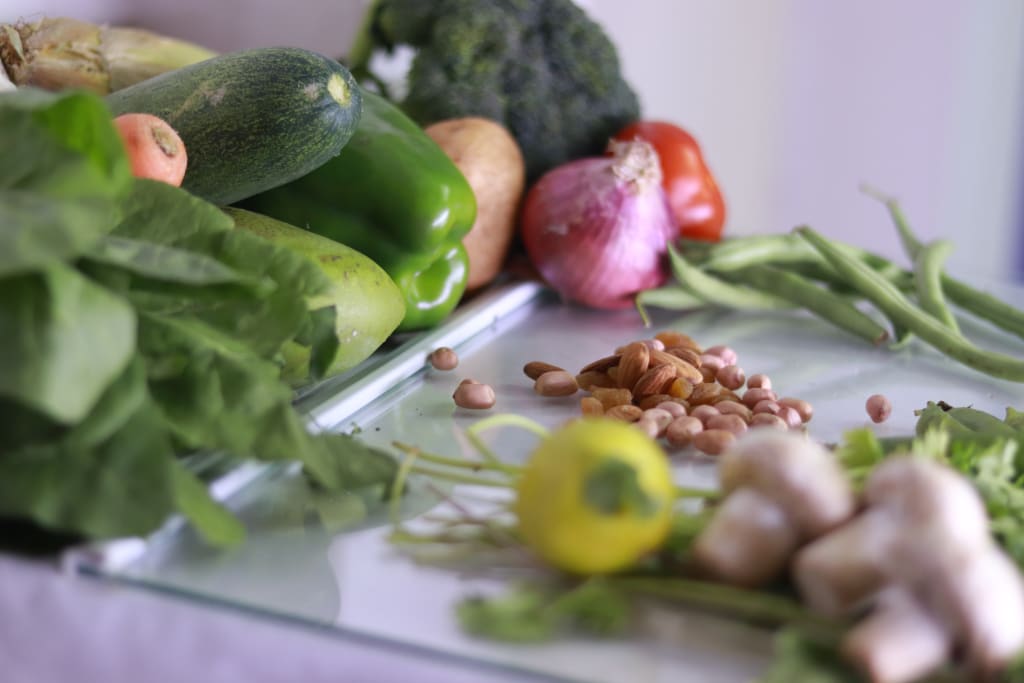What is diet? How to diet to lose belly fat?
What are the diet foods?

What is a diet?
A diet is a pattern of eating that a person chooses to follow. It can refer to the specific foods consumed, as well as the frequency and quantity of those foods. Diets can be used for a variety of reasons, such as weight loss, weight gain, or to improve overall health. Different diets may have different guidelines, such as restrictions on certain types of foods, or specific macronutrient ratios.
What are the 4 types of diets?
There are many different types of diets, but some common categories include:
- Balanced diet: A diet that includes a balance of macronutrients (carbohydrates, proteins, and fats) and micronutrients (vitamins and minerals) in the appropriate amounts for a person's age, sex, and level of physical activity.
- Low-carb diet: A diet that limits the intake of carbohydrates, often in order to promote weight loss.
- High-protein diet: A diet that emphasizes the consumption of protein-rich foods, such as meat, fish, eggs, and dairy products.
- Low-fat diet: A diet that limits the intake of fat, often in order to promote weight loss or improve heart health.
These are some examples of the more common diets, but there are many more different types of diets that exist.
What are the diet foods?
There is no specific list of "diet foods" as different diets may have different guidelines for what foods are appropriate. However, some foods that are often considered to be part of a healthy diet include:
- Fruits and vegetables: These are high in vitamins, minerals, and antioxidants, and are also low in calories.
- Whole grains: Such as quinoa, brown rice, oats, barley, and whole wheat bread, which are high in fiber and other nutrients.
- Lean proteins: Such as chicken, fish, tofu, and legumes, which can help with weight loss and muscle building.
- Healthy fats: Such as avocado, nuts, seeds, and olive oil, which can help with weight loss and heart health.
- Low-fat dairy products: Low-fat milk, cheese, and yogurt, which can provide the body with essential nutrients such as calcium and vitamin D.
It's important to note that the above mentioned are examples and depending on the diet you follow, the foods may vary.
How do I lose weight by diet?
To lose weight through diet, you can follow these general guidelines:
- Create a calorie deficit: In order to lose weight, you need to burn more calories than you consume. Determine your daily calorie needs and then create a deficit by consuming fewer calories or burning more through exercise.
- Eat nutrient-dense foods: Choose foods that are high in nutrients and low in calories, such as fruits, vegetables, whole grains, lean proteins, and healthy fats.
- Control portion sizes: Use smaller plates and be mindful of how much you're eating. Eating slowly and stopping when you feel full can also help prevent overeating.
- Plan your meals and snacks: Plan ahead and make sure you have healthy options available when hunger strikes. This can help you avoid impulse eating and make healthier choices.
Avoid processed foods, sugar and saturated fats.
- Drink plenty of water: Drinking water can help keep you feeling full and may also boost your metabolism.
- Be consistent: Losing weight is a gradual process, so it's important to stick with your diet and exercise plan over time.
Consult a nutritionist if you need help to create a personalized plan according to your needs.
It's important to note that every individual has different needs, and it's always best to consult a healthcare professional before making any drastic changes to your diet or exercise routine.
How to diet to lose belly fat?
To lose belly fat specifically, you can follow these guidelines in addition to those mentioned previously:
- Incorporate more fiber into your diet: Foods high in fiber, such as fruits, vegetables, whole grains, and legumes, can help keep you feeling full and may also reduce belly fat.
- Limit added sugars: Consuming too much added sugar can lead to weight gain, especially in the abdominal area.
- Increase your protein intake: Eating more protein can help increase feelings of fullness and promote weight loss.
- Engage in regular aerobic and strength training exercise: Aerobic exercise, such as running, cycling, or swimming, can help burn calories and reduce overall body fat. Strength training can help increase muscle mass, which can boost metabolism and help burn calories even when you're at rest.
- Include healthy fats in your diet: Consuming healthy fats such as olive oil, nuts, and avocado can help reduce belly fat and improve heart health.
- Reduce stress : High levels of stress can lead to an increase in cortisol, a hormone that can cause belly fat storage.
- Get enough sleep: Aim for 7-8 hours of quality sleep per night. Lack of sleep can disrupt hormones that regulate appetite, leading to weight gain.
It's important to note that losing belly fat can be challenging, and it may take time and patience to see results. It's always best to consult a healthcare professional before making any drastic changes to your diet or exercise routine.
For more details : Click here
About the Creator
Being Inquisitive
Blogging can provide a creative outlet for expressing your thoughts, feelings, and ideas. It can be a way to share your passion and interests with others and to engage with like-minded individuals.






Comments
There are no comments for this story
Be the first to respond and start the conversation.